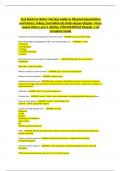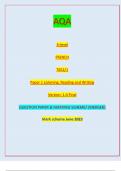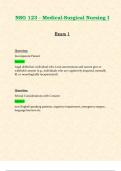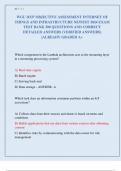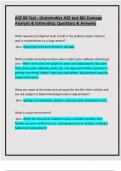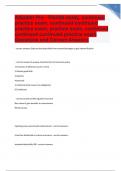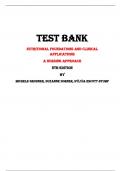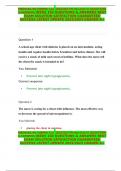Exam (elaborations)
Bates’ Nursing Guide to Physical Examination and History Taking 2nd Edition By Beth Hogan-Quigley; Mary Louise Palm; Lynn S. Bickley 9781496305565 Chapter 1-24 Complete Guide
- Course
- Institution
- Book
Bates’ Nursing Guide to Physical Examination and History Taking 2nd Edition By Beth Hogan-Quigley; Mary Louise Palm; Lynn S. Bickley 9781496305565 Chapter 1-24 Complete Guide
[Show more]
